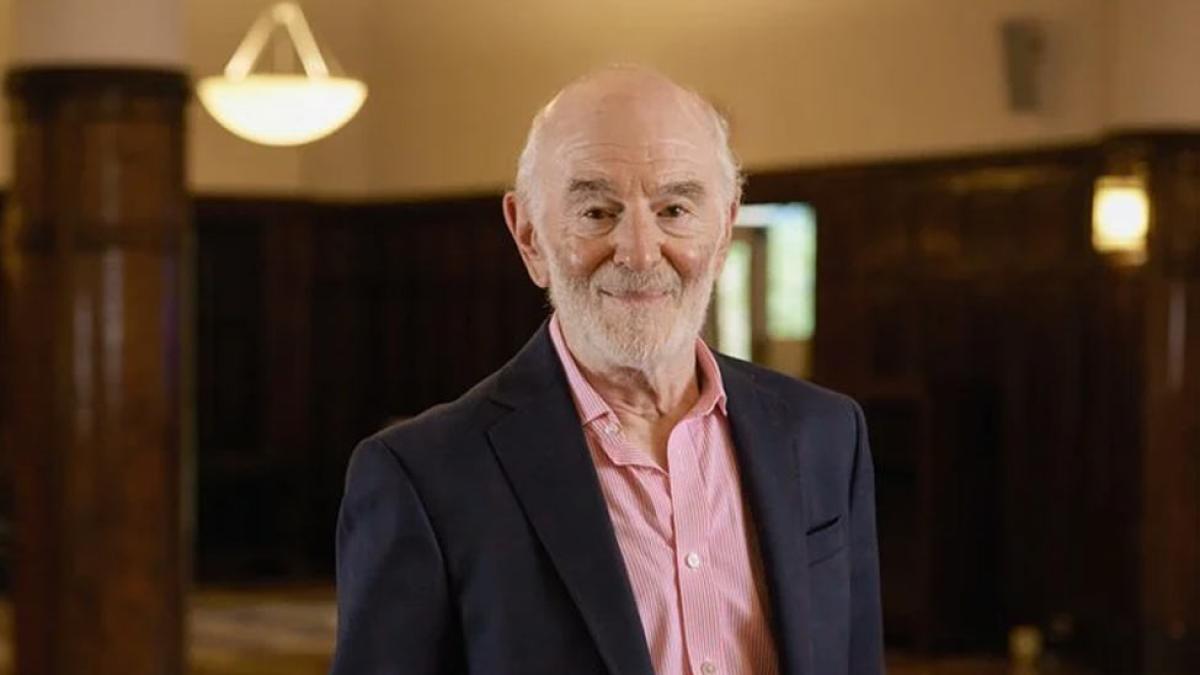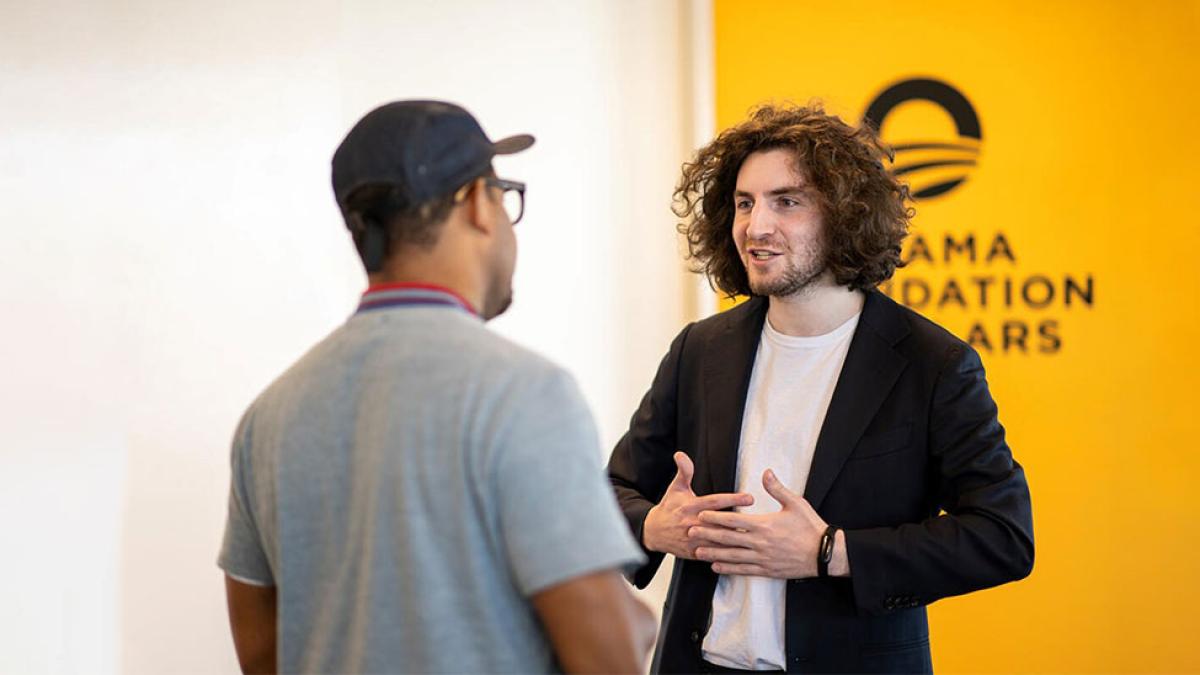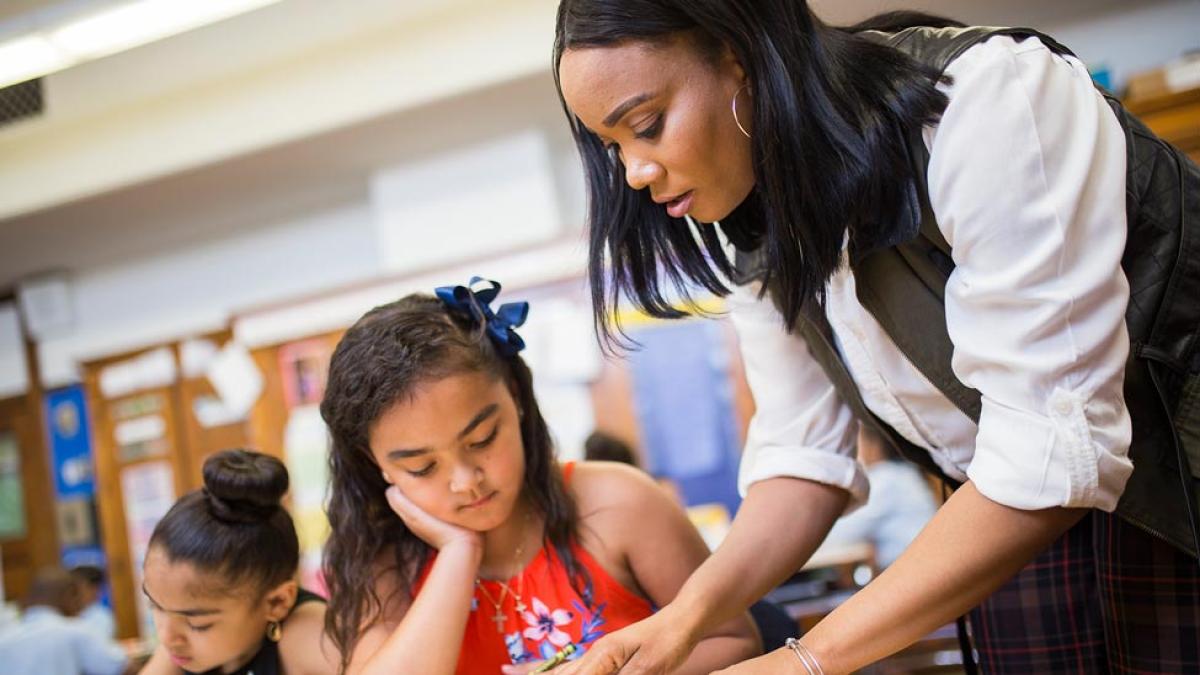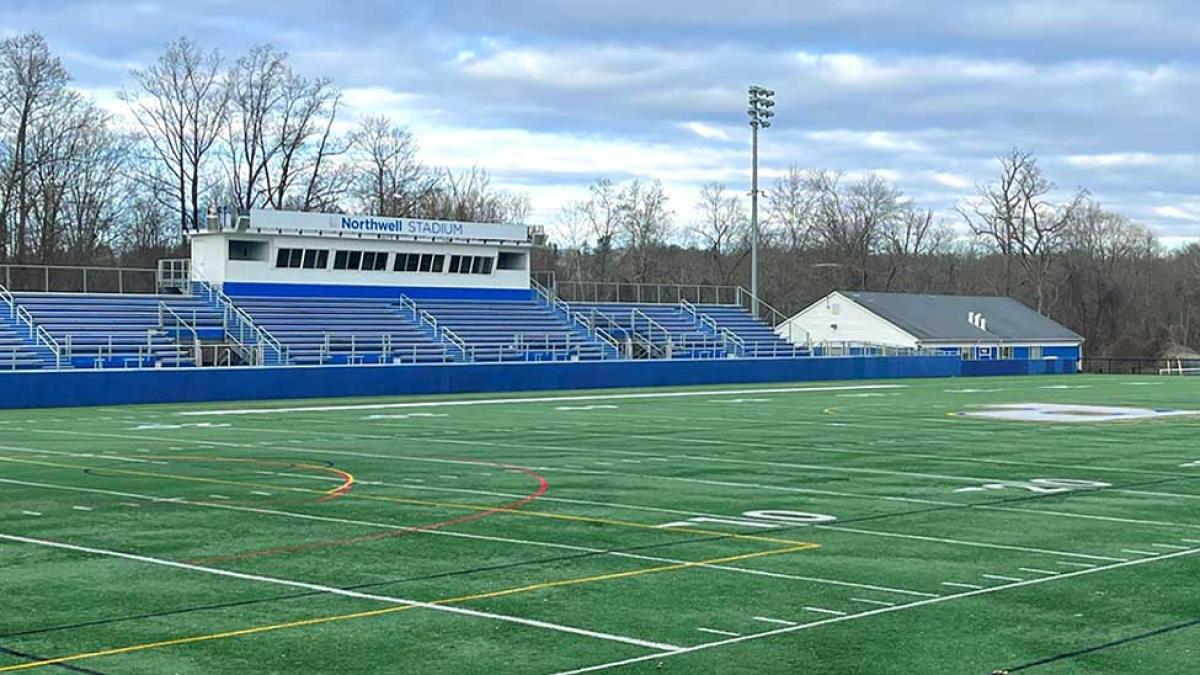
Apartment Living, Conflict Over Noise
Dyson Professor Seong Jae Min writes a piece in The Korea Times examining South Korea’s growing conflicts over apartment noise—everyday sounds that can escalate into major disputes. Drawing on cultural context and urban trends, he argues that resolving these tensions requires both improved building standards and stronger community norms.
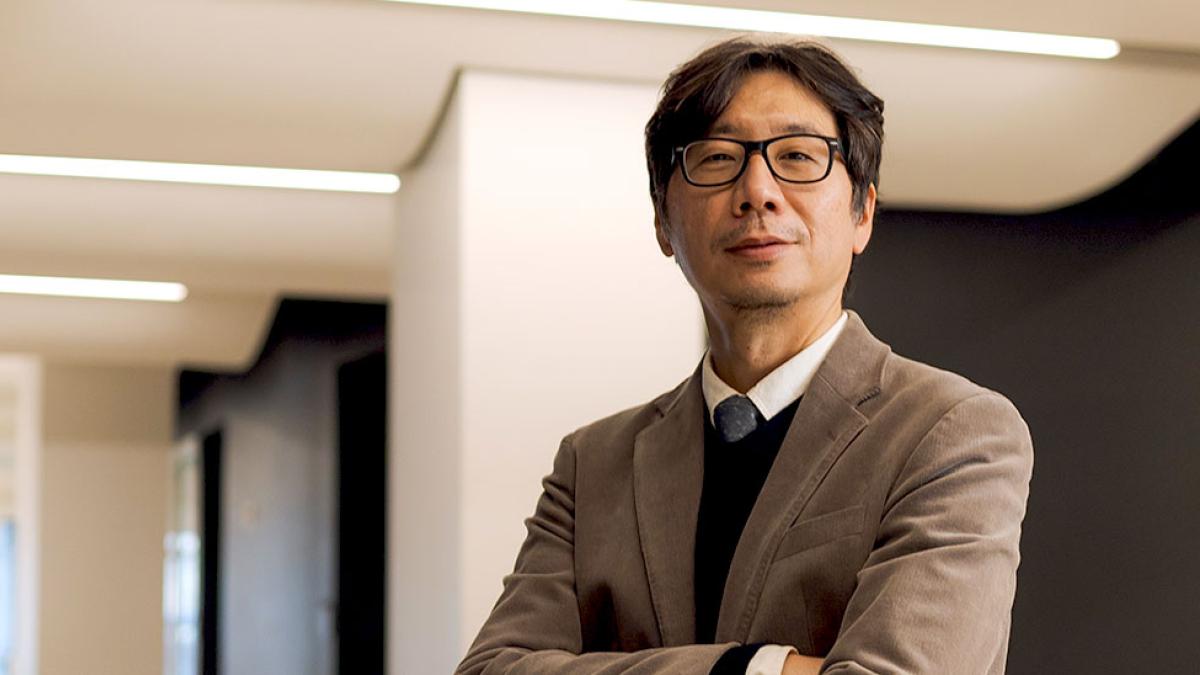
Alison Carr-Chellman Appointed Provost of Pace University
Women in Academia Report highlights a major leadership announcement: Alison Carr-Chellman has been appointed provost and executive vice president for academic affairs at Pace University and will begin her role on January 20.
Pace to Launch Bachelor of Science in Artificial Intelligence in Fall 2026
The Business Council of Westchester spotlights Pace’s expanding footprint in AI education, highlighting the launch of a new Bachelor of Science in Artificial Intelligence, beginning in Fall 2026 through the Seidenberg School of Computer Science and Information Systems.
States Where Unemployment Claims Are Increasing the Most
Dyson Professor Ric Kolenda was featured in WalletHub's recent article about Unemployment Claims.
Pace Students Build Real-World AI Solutions at IBM Hackathon
On December 5, 2025, IBM partnered with the Seidenberg School’s Pace Data Science Society to host a full-day hackathon at Pace University.


On December 5, 2025, IBM partnered with the Seidenberg School’s Pace Data Science Society to host a full-day hackathon at Pace University. The event opened with remarks from IBM technology leaders Jonathan Hill (Technology Executive Leader), Rich L’Insalata (Executive IT Architect), and Lindsey Sample (Technology Sales Leader), who introduced students to IBM’s AI workflow tool, Watson Orchestrate. The presentation included a practical demonstration of how the tool automates routine tasks, connects applications, and enables users to build streamlined workflows without advanced coding.
More than 15 IBM mentors were on-site to support student teams throughout the day, helping them explore real-world applications of Watson Orchestrate across four use cases based on actual Pace University web services. As teams analyzed their scenarios, developed ideas, built prototypes, and presented their solutions, their work showcased a range of inventive approaches and thoughtful problem-solving grounded in teamwork and technical skill.

A panel of judges—including Dean of the Seidenberg School Li-Chiou Chen, Pace University’s Interim Provost Jonathan Hill, Alex Weisman, and Seidenberg professors Jonathan Lee, Soheyla Amirian, Krishna Bathula—reviewed the final presentations and commended the teams for their clear communication, thoughtful effort, and effective problem-solving.
After a full day of collaboration and problem-solving, the top three teams included Team 6 (Melody Nguyen, Sofia Furda, Omari Nasir, and Ulyana Shyrokaya), who took first place; Team 12 (Raja Palagummi, Pranjali Changadkar, Aarian Varma, and Vishnu Sai Reddy) in second; and Team 1 (Nisarga Vishwamanjuswamy, Utkarsh Yadav, Palakben Shah, and Niharika Jagadeesh) in third.
The hackathon provided students with hands-on experience using professional tools and meaningful opportunities to engage with industry experts. By working through real challenges with guidance from IBM mentors, participants gained insight into how classroom concepts translate into practical solutions—highlighting the value of Pace’s experiential learning model and the strong industry partnerships that make these opportunities possible.
The Language of Business
Being able to analyze data in this day and age will take you very far. For so long, business students have been taught that spreadsheets are “King,” but the ability to extricate meaning from data is what will set them apart from the masses vying for top spots in companies and organizations. Sarita Himthani ’25 shares her thoughts on the importance of data science and its application across industries. Professor Vishal Lala, who teaches quantitative courses in marketing at Lubin, offers his expertise on industry’s need for data scientists who understand business. Prepare for the future by being data literate.

Sarita Himthani
Class of '25
Pronouns: She/Her
Currently Studying: MS in Information Systems, Data Science Concentration
Student Assistant, Lubin School of Business

Not long ago, business students were taught that spreadsheets were enough. If you could calculate profit margins, build a budget, or analyze sales numbers, you were considered data savvy. Today, that’s only the beginning. Across every industry, companies are flooded with information—web traffic, customer preferences, supply chain metrics, even social media sentiment. Making sense of all this requires more than a good Excel formula. It calls for the tools and mindset of data science.
Data is now the language of business. Imagine walking into a meeting where the conversation revolves around customer lifetime value, churn predictions, or real-time inventory analytics. Without the ability to understand the numbers behind those terms, tomorrow’s leaders risk being left out of critical decision-making.
Professor Vishal Lala, PhD, who teaches quantitative courses in marketing at Lubin, has said: “Today’s businesses, armed with more data than ever before, are eager to unlock the power of data. They are looking for executives that have a sound understanding of business, have the ability to write computer code to analyze data, possess the statistical know-how to interpret it, and the acumen to effectively communicate results to senior management. They are looking for a Data Scientist who understands Business.”
Spreadsheets can tell you what happened. Data science helps you ask what’s likely to happen next. With techniques like predictive modeling and machine learning, businesses can forecast trends, uncover hidden opportunities, and make decisions backed by evidence—not guesswork.
Employers today aren’t just looking for managers who can lead teams. They want problem-solvers who can bridge business strategy with analytical thinking. Even a basic understanding of data science can set a candidate apart—whether in consulting, finance, or marketing.
At its core, data science isn’t only about writing code or building algorithms—it’s about translating those technical foundations into better choices. Algorithms are powerful because they reveal patterns too complex for the human eye. But the real value lies in how those insights guide action. Data science helps us cut through the noise, surface meaningful trends, and balance intuition with evidence. For business students, learning data science isn’t about becoming a data scientist—it’s about being prepared for a future where every leader is expected to be data literate.
Connect With Sarita
Want More Tech Talent? Teach Them To Solve Problems
In a Forbes article, Pace University President Marvin Krislov explores why developing tech talent starts with teaching students how to solve real-world problems—not just write code. Drawing on Pace’s experiential learning model, he highlights how students apply their skills to projects with real impact, including building systems that support emergency services. The piece underscores the importance of hands-on, purpose-driven education in preparing students for today’s technology-driven workforce.
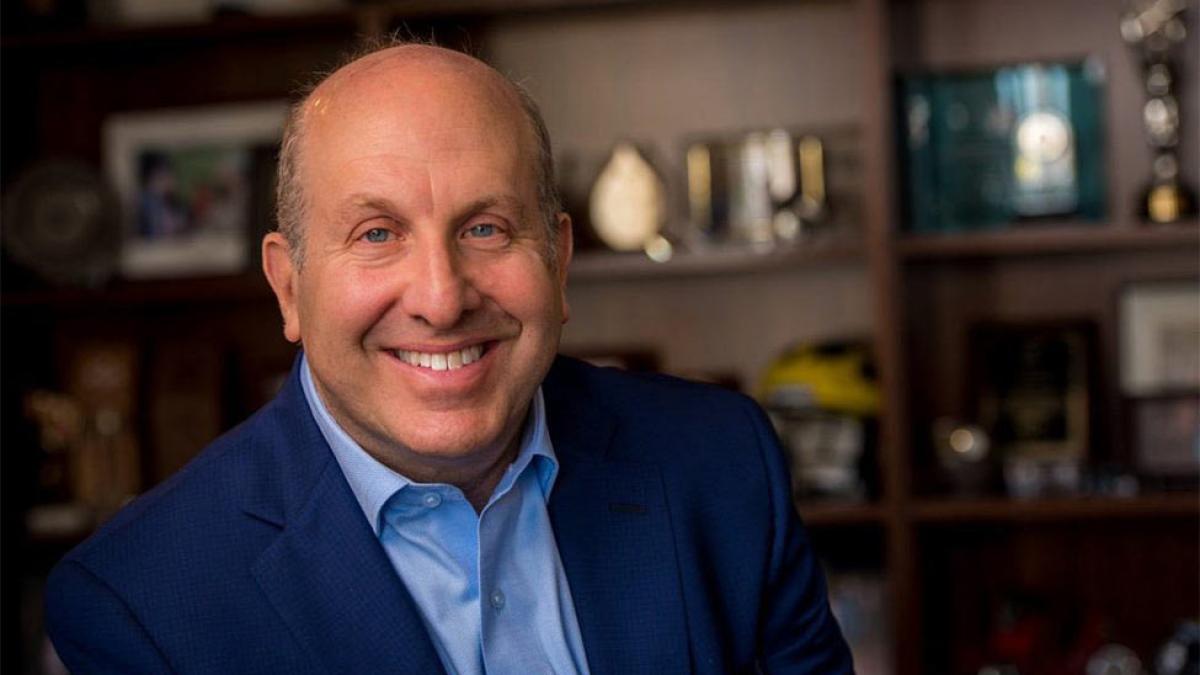
Prioritizing Mental Health at Pace University
As mental health becomes a global priority, expanding initiatives like mental health first aid can create lasting change across communities worldwide. Here's how we’re making it happen right here at Pace.


Mental health and wellbeing have long been a priority for Pace University, and now, through the transformative mental health first aid (MHFA) program, the University is equipping its community with vital tools to foster a supportive environment. Enabled by a grant from the National Council on Mental Wellbeing, in partnership with Montefiore Medical Center, this initiative is expanding access to mental health training across all three Pace campuses.
Learn more and register for an upcoming session.
The MHFA course empowers participants—faculty, staff, and students alike—with practical skills to identify, approach, and support individuals navigating mental health or substance use challenges. Designed with a focus on inclusivity, the training prepares the Pace Community to meet the diverse needs of its members, ensuring a safer and more understanding campus climate. Participants leave with not only actionable strategies but also the confidence to apply them in both professional and personal settings.
“At its core, inclusion calls us all to work together when we are in community,” says Birkenmeyer.
“The course and content are presented in way that allows participants to learn tools they can use in everyday life,” explains Vinnie Birkenmeyer, the director of Residential Life in Westchester and staff member brought the program to Pace in 2023. “A campus community has folks of many different backgrounds, identities, and experiences so learning skills that are helpful for a variety of folks is very beneficial."
Feedback from more than 60 participants underscores the program’s impact. While the commitment—a two-hour pre-module and a full day of virtual training—initially seemed daunting to some, many have found it deeply rewarding.
Looking ahead, the University aims to train 500 individuals by the end of the grant’s fourth year, with 200 having already completed the training. Integrating this training into onboarding processes for new staff and encouraging wider faculty and student participation are key goals. By embedding mental health awareness into the fabric of its culture, Pace is furthering its commitment to a truly inclusive and supportive community.
“At its core, inclusion calls us all to work together when we are in community,” says Birkenmeyer.
This program is more than a training opportunity—it’s a step toward a healthier, more connected Pace, where every individual feels empowered to support one another. Through initiatives like MHFA, the University continues to champion mental wellness as a cornerstone of its vibrant and dynamic environment.
“I hope this training encourages participants to utilize these skills in their everyday life—with their families, friends, or strangers they interact with who may need a supportive person to help them navigate a difficult situation,” says Birkenmeyer. “It is critical for us to prioritize mental health and wellbeing.”
More from Pace Magazine
After answering an unexpected call to the field of mental healthcare, Daniel Crotty ’23 has earned the title of Obama Foundation Scholar and the chance to make a far-reaching impact.
Through a grant from the New York State Department of Education, SOE's Jennifer Pankowski and Seidenberg's Tom Schmidt are employing artificial intelligence solutions to potentially revolutionize the teacher training experience.
Thanks to a generous gift from Kenda Sports Group, Pace Athletics is proud to announce that after a 35-year hiatus, men’s soccer will return to campus.
How Daisy Molina Found Her People—and Her Passion for Computing—at Pace University
Coming from a small town in Arizona, Daisy Molina was curious about how the big changes of moving to New York City would impact her. She wondered whether she would be able to find her place and a sense of community in one of the world’s busiest cities. But she found a sense of belonging at Pace University’s Seidenberg School of Computer Science and Information Systems.


Coming from a small town in Arizona, Daisy Molina was curious about how the big changes of moving to New York City would impact her. She wondered whether she would be able to find her place and a sense of community in one of the world’s busiest cities. But she found a sense of belonging at Pace University’s Seidenberg School of Computer Science and Information Systems.
“When I visited Pace and learned about Seidenberg, what stood out to me was how much it felt like a family,” says Daisy, a BS in Computer Science major with a minor in Information Assurance for the Criminal Justice System. “Not just faculty supporting students, but students supporting each other. I quickly realized that Seidenberg wasn’t just a school; it was a community where people lift each other up.”
This mindset—building excellence through community—became the foundation of Daisy’s college experience and helped her grow from a newcomer in the field to a confident computer scientist ready for what the future will bring.
From faculty who go out of their way to help you succeed, to students who support and push each other, there’s always someone in your corner.
Finding Joy in the Challenge
While the world of programming felt challenging to Daisy at first, it didn’t take long before she learned to embrace it—and even enjoy it.
“One of the pivotal moments for me as a computer science student was when I began to have fun with my coding assignments, and even enjoying the challenge,” she recalls. That moment came during her Data Structures and Algorithms course with Professor Carmine Guida, who also serves as the program chair of Pace’s BS in Game Development.
“It stood out to me because not only was he a stand-out teacher and mentor taking the time to explain each concept, but having friends in the class made it so much fun,” says Daisy. “I still remember cramming in the library with my friends and thinking that while studying wasn’t super fun, having them there made it so much easier. I am so thankful to the students of that class and to Professor Guida for not only making it fun to study, but also helping me become more confident in my programming skills.”

Getting Involved at Pace—and Growing as a Leader
During her first-year University 101 course, Daisy learned another lesson that proved pivotal in her Pace journey: get involved early, and stay involved.
“I took that to heart and I definitely dove in,” she says.
By the end of her first year, she had joined both the Cybersecurity Club and the Women in Tech club—and is now treasurer for both. “These clubs have taught me how to be a leader and how to balance a somewhat heavy workload,” Daisy says. “I have met some of my best friends through these clubs and met so many new students and learned so much.”
She also found a home in Seidenberg’s Digital Forensics Research Lab. “This has not only provided me with opportunities to network with professionals of numerous fields, but I have learned so many technical skills that are invaluable in real-life application,” Daisy says. She adds that Dr. Darren Hayes, her direct supervisor in the lab and Director of Cybersecurity, “has been a great boss and mentor guiding me to be a professional in the workforce, who can be successful and proactive in chasing new opportunities.”
One of her favorite memories? A road trip to the National Collegiate Cyber Defense Competition with her team. “It was four hours in a car, competing under pressure, and celebrating afterward by baking cookies together—the embodiment of the Seidenberg family.”
This has not only provided me with opportunities to network with professionals of numerous fields, but I have learned so many technical skills that are invaluable in real-life application.
What Makes Pace and Seidenberg Stand Out
Daisy sums up her Pace experience in three words: community, opportunity, and growth.
“This school truly feels like a family. From faculty who go out of their way to help you succeed, to students who support and push each other, there’s always someone in your corner,” she says.
“Whether it’s labs, clubs, conferences, competitions, internships, or traveling for events, Pace constantly opens doors. If you’re willing to show up and get involved, there’s always a new opportunity waiting. Seidenberg pushes you to expand your comfort zone, technically and personally. I came in nervous and unsure of myself, but the projects, mentorship, and leadership roles I’ve taken here have shaped me into a confident computer scientist and future cybersecurity professional.”
Op-Ed | Police Did Nothing Wrong In Questioning And Searching Luigi Mangione
Pace Haub Law Professor Gershman wrote an op-eds for amNewYork analyzing police conduct during Mangione’s initial encounter with law enforcement.
